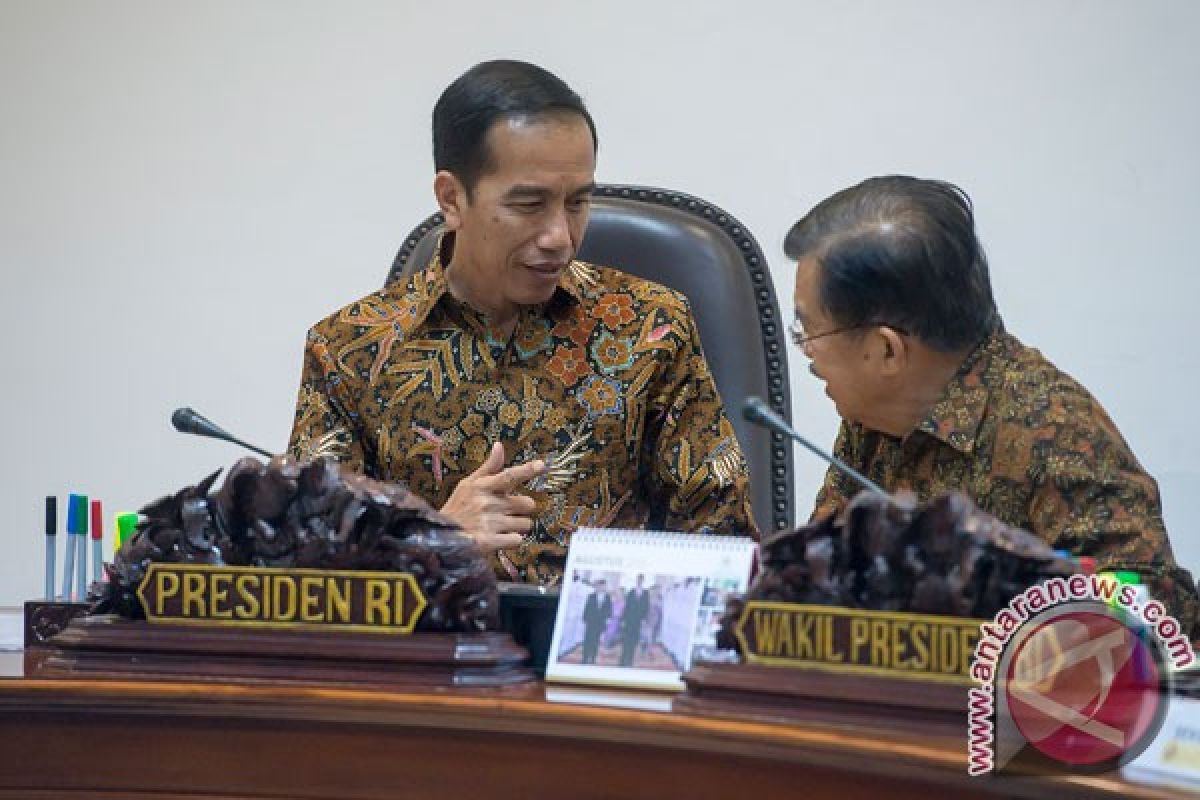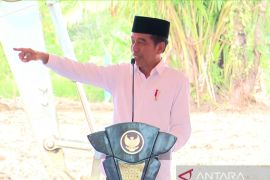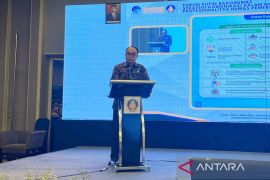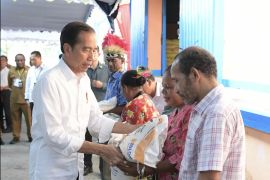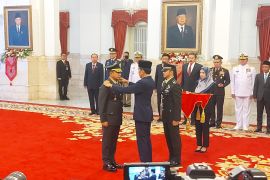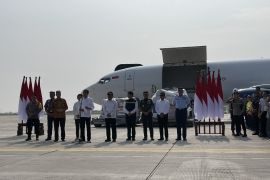We plan to make integrated social media."Jakarta (ANTARA News) - Stability has been one of the objectives of President Joko Widodo and Vice President Jusuf Kalla (Jokowi-JK) administration since they took office three years ago.
The government is aware that stability is one of the conditions to implement development programs. It is also a key to shoring up investors confidence in the country to boost economic growth.
During three years of his leadership, President Jokowi has succeeded in creating stability in the fields of politics, law and security.
In his address to a roll call of chiefs of territorial units of the National Police at the Police Academy in Semarang, Central Java, on Oct 9, the president reiterated the need for the nation to maintain political and security stability.
Coordinating Minister for Political, Legal and Security Affairs Wiranto said on Oct 19 political, legal and security stability in the country is very good during three years of the Jokowi-JK administration.
"To build (the nation), we need political, legal and security stability. In general, stability in the past three years is quite good," he said.
According to him, stability serves as the basis for the implementation of development programs, which will eventually promote the standard of living and social justice for the nation.
Despite a drop in the countrys democracy index, the political, legal and security stability still can be maintained, he said.
He noted that the drop in democracy index is the result of regional head elections in several parts of the country which became cause for major concern.
"But voter turnout in regional head elections rose to 74.5 percent in 2017 from 69.2 percent in 2016," he said in a Media Forum Merdeka Barat 9 (FMB9) discussion at the Presidential Staff Office in Jakarta on Oct 19.
According to the Central Statistics Agency (BPS), the countrys democracy index has continued to fall since 2015 when voter turnout reached 73.04 percent. The voter turnout fell to 72.82 percent in 2016 and further went down to 70.09 percent in 2017.
Wiranto said the decline in democracy index had nothing to do with the governments performance. "There are 26 indicators to set democracy index, meaning that it is not merely related to the governments performance," he said.
The democracy index is highly dependent on the behavior of democracy actors themselves, he said.
Meanwhile, Home Affairs Minister Tjahjo Kumolo said in the same forum that the democracy index dropped drastically only in the provinces of Jakarta and West Sumatra.
The democracy index in the provinces fell due to ethnic, religious, racial and societal group (SARA) sentiments during the 2017 gubernatorial elections, he said.
"This is because of SARA issue and hoax. But we will make every effort so it will recover next year. We are optimistic the democracy index will increase," he said.
After all, Indonesia has been consistently receiving the highest total score of democracy index, as compared to other ASEAN countries, according to Universal Periodic Review 2017 held by the United Nations Human Rights Council.
Indonesia scored 6.97 percent, followed by the Philippines with 6.94 percent, Malaysia with 6.54 percent, Singapore with 6.38 percent, and Thailand with 4.97 percent, Theofransus Litaay, a deputy adviser at the presidential office, noted.
Wiranto said the spread of hoaxes has also somewhat disrupted political, legal and security stability and has had an impact on the governments performance.
Therefore, the government plans to take stern measures against anybody found guilty of making government-related information biased. This way the public will receive accurate information from the government, he said.
"What the public learn is different from the reality. We plan to make integrated social media. By doing so, the public can spread accurate information about what the government has done, without manipulating it," he said
He went on to say the government will also set up a National Cyber and State Codes Board (BSSN) which will be in operation at the end of this year to thwart cyber threats.
Cyber threat is a modern threat to the sovereignty of the Unitary State of the Republic of Indonesia.
"The current threat is no longer traditional threat in the form of military attack but it comes in the form of cyber attack including terrorism," he said.
The president believed if the security and political stability and the current economic growth can be maintained while at the same time global commodity prices begin to increase and the global economy returns to normal, Indonesia will enter the so-called golden era in 2045.
"This prediction does not come from us but from Mackenzie, the World Bank, the Organization for Economic Cooperation and Development (EOCD) which said that Indonesia will enter the so-called golden Indonesia era," he added.
(T.S012/KR-BSR/B003)
Editor: Priyambodo RH
Copyright © ANTARA 2017
